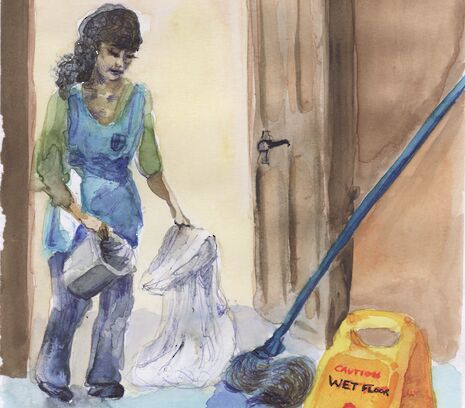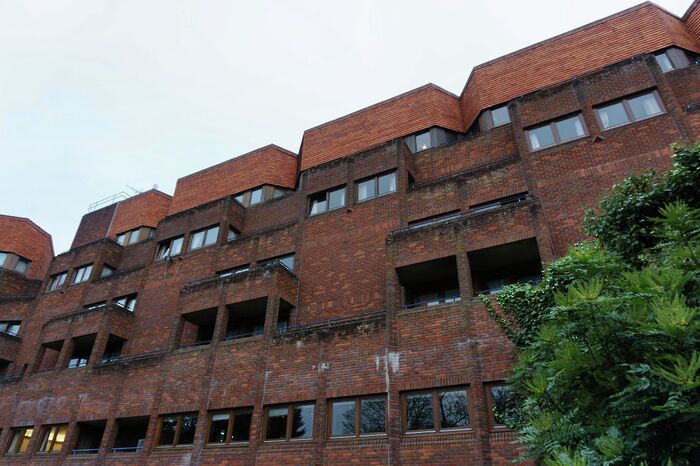Class colours our relationship with college workers
By treating college staff as ‘comic appendages’ we are colouring our perception of class relations, argues Olivia Sutherland

There is an awkwardness about class in Cambridge which cannot be denied. This is only the most recent in a string of earnest pieces of student journalism confronting elitism, and it certainly will not be the last. Yet for all our noise, there is a marked silence in the places where our immediate relationships are structured by social class. It seems that students are unwilling to bring up the issues surrounding social class, which arise in day to day interactions, in the same way that they might raise issues concerning gender or race.
If this is the case with the relationships between students, how much more strained does this silence become when the less privileged person is not a student, but a member of non-academic staff? We are in regular contact with these members of college, and the fact that they are explicitly providing us with a service, from cleaning to catering, leads to an uncomfortable ambiguity about their status, to which some students respond patronisingly. I myself exhibit a self-aware awkwardness because of this dynamic: I hop up at the sound of the bedder’s knock to start frantically tidying, and I cast nervous smiles at the porters, hoping they know that I don’t bang drunkenly on the main gate late at night, but take the side-gate and leave them in peace.
“We are allowed to imagine that bedders are just another quaint tradition”
However, as awkwardness often does, the strained silence of Cambridge produces nervous titters. How many times have you heard jokes about grumpy porters, standoffish bedders, or, crime of hilarious crimes, a bedder accidentally interrupting a student during sex? The fact is that student discourse about college workers often positions them as if they were a colourful backdrop of Dickensian side-characters, existing on the periphery to throw into relief the supposedly deeply amusing exploits of students. We are so mired in euphemism that even the term ‘bedder’ is oddly equivocal: using the old-fashioned Cambridge jargon, we are allowed to imagine that bedders are just another quaint tradition, rather than our often vastly underpaid personal cleaners. As the recent creation of the Taylor’s Table has shown, over half of Cambridge colleges fail to pay all their staff the Real Living Wage of £8.75 per hour, and therefore set a poor example for students by failing to treat their employees with dignity.
This student behaviour is not necessarily epidemic (as is demonstrated by the student engagement which led to the creation of the Taylor’s Table itself) but it is symptomatic. It is testament to a culture in which not gaining access to this prestigious institution through academia can render a person inferior in the social eye; one where the most culturally challenging thing that a student from a privileged background is likely to encounter is a student from a less privileged one. However, it may be the case that these relationships will be the most substantial connection in their lives so far to someone from a significantly different class background. There is a tendency to take less privileged students as straightforward representatives of ‘the working classes’, without fully realising how different the makeup of society outside the University is.
“There is a tendency to take less privileged students as straightforward representatives of ‘the working classes’”
Therefore, I believe many students leave Cambridge with a skewed picture of the social spectrum, thinking that they have encountered the full scope of its diversity here. It is a worrying prognosis when some of the greatest minds of our generation are set loose on the world so completely untheorized about – and unpractised in – social class relations.
Currently, awkwardness or obliviousness towards social class, and a resultant dehumanising comic strain, characterise much of the discourse about college workers, colouring students’ perceptions of class relations for years to come. Students can change this discourse by becoming more self-aware and refusing to participate in a culture which treats college staff as comic appendages to our narratives. A more open discussion of class in Cambridge, with less ostracising nervous laughter, can only take place when students are brave enough to resist these tendencies, helping to inculcate a more thoughtful attitude to class in those who might lack it.
 Comment / Plastic pubs: the problem with Cambridge alehouses 5 January 2026
Comment / Plastic pubs: the problem with Cambridge alehouses 5 January 2026 News / Cambridge academics stand out in King’s 2026 Honours List2 January 2026
News / Cambridge academics stand out in King’s 2026 Honours List2 January 2026 News / Cambridge businesses concerned infrastructure delays will hurt growth5 January 2026
News / Cambridge businesses concerned infrastructure delays will hurt growth5 January 2026 News / AstraZeneca sues for £32 million over faulty construction at Cambridge Campus31 December 2025
News / AstraZeneca sues for £32 million over faulty construction at Cambridge Campus31 December 2025 Interviews / You don’t need to peak at Cambridge, says Robin Harding31 December 2025
Interviews / You don’t need to peak at Cambridge, says Robin Harding31 December 2025










